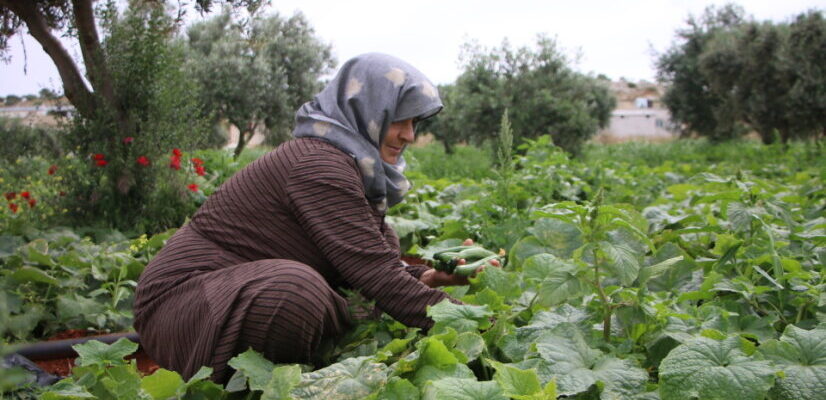Vegetable growing means food and profit for vulnerable families
Syria | 2023 | CBPF
Syria, Alteh village. Fatema, in her fifties, has supported her seven children on her own since her husband’s death.
Displaced from their agricultural land, her family were in a difficult position. For the family to survive, some of the children dropped out of school to work as casual labourers on other people’s farms.
Conflict and economic crisis continue to drive needs in Syria. At least 12.9 million people across the country need food assistance. By October 2023, the cost of the food basket had doubled compared to January – and had quadrupled in two years.
Local organization MASARATT, with funding from the Syria Cross-Border Humanitarian Fund, has been promoting vegetable farming as a new economic opportunity for vulnerable families like Fatema’s. Through the programme, Fatema has accessed seeds, fertilizers, and farming equipment, as well as training and advice on new techniques.
Learning a new-to-her planting technique planting the vegetables in plastic tunnels – Fatema can collect her harvest earlier. This fetches a higher price at the market and provides Fatema’s community with locally grown food that is cheaper than imports.
The extra money she made allowed Fatema to pay off some urgent debts and buy medicines for her kids. If all goes well, she is planning now to send the children back to school during the new school year.
More information on the Syria Cross-Border Humanitarian Fund.
